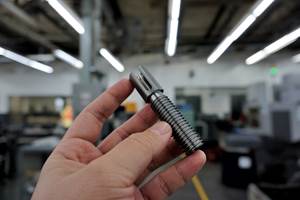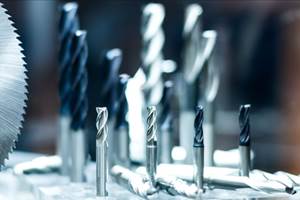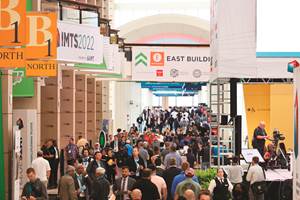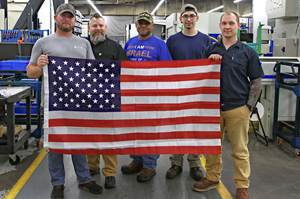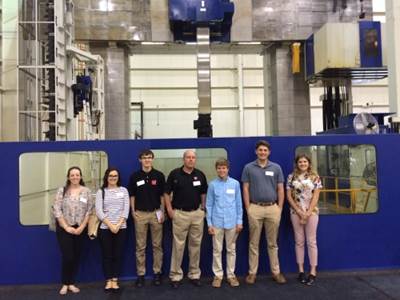A Manufacturer without Boundaries
A manufacturer without boundaries is recognized for excellence in NASA Space Program
Metalex Manufacturing is a company without boundaries. Starting 45 years ago, the Cincinnati-based company has expanded exponentially, increasing from a small, family-owned shop to a now 120-person manufacturing team. Its most substantial growth, however, is not represented by the size of its workforce.
Earlier this month, Metalex was recognized for its contribution to NASA’s Orion spacecraft and Space Launch Systems program. The company was one of 76 Ohio manufacturers working on instrumental, high-precision components for the spacecraft. After five years on the project, Metalex was presented with NASA’s Space Flight Awareness Award for its dedication to the aerospace industry and commitment to quality and safety.
CEO and President, Werner Kummerle, has been on the Metalex team since its start in 1971. The company’s foundation is largely attributed to what he calls a “business plan of change.”
“Metalex operates under the guidance of our Business Plan, IWB, all documented in our playbook, the standard by which we work, of which every teammate has a copy.”
This business plan is a comprehensive program instilled in the company’s environment, culture and day-to-day processes. The program is a tool in transparent communication, lean manufacturing practices and continuous education.
With that message hung on a banner behind him, Mr. Kummerle accepted the award before employees, industry leaders and guests in the heart of the company’s Center for Advanced Large Manufacturing–a 40,000 square-foot facility built in 2012. “It’s not often that Metalex is able to showcase what we’re doing on a daily basis,” he says. Holding more than 100 in attendance and a 55-foot-high vertical turning and milling center, the facility is monumental.
Walking through the manufacturing center and through to the shop floor, however, truly exposes the company’s impressive size.
“The performance of a system depends on how its parts interact, not on how they act taken separately.”
This message, attributed to organizational theorist Russell L. Ackoff, hangs on the wall in the assembly department housing critical components for Spallation Neutron Source Operations at the Oak Ridge National Laboratory. Groups were led on a shop tour where guests witnessed projects such as this start with raw material and finish as near-completed complex assemblies.
As a Metalex chemical engineer explains chemical processes during the tour, a large 6S poster behind him highlights the five traditional, organizational doctrines: sort, straighten, standardize, shine and sustain. The one added by Metalex is “say.”
This embodies the company’s dedication to communication and improvement. On every wall, signs and posters encourage excellence. In addition to the small reminders around the shop, all employees create and build their own playbook. This manual is extensively personalized, but not without the company’s consideration of “the team.” Each employee systematically documents personal goals, improvements, responsibilities and overlapping interactions with each department. Most notably, the massive three-ring-binder leaves plenty of room in the back for more.
“If you are not learning something every day, how will you compete with the ones that do?”
In his speech, Mr. Kummerle stresses the importance of continuous learning not only for Metalex, but for the manufacturing industry and the space sector. The ceremony was a celebration of American ingenuity, entrepreneurial excellence and a drive to push boundaries. The overarching theme is the journey: for the Orion spacecraft, for space exploration and for the next generation of skilled manufacturers.
Related Content
When Handing Down the Family Machine Shop is as Complex as a Swiss-Turned Part
The transition into Swiss-type machining at Deking Screw Products required more than just a shift in production operations. It required a new mindset and a new way of running the family-owned business. Hardest of all, it required that one generation let go, and allow a new one to step in.
Read MoreAddressing the Manufacturing Labor Shortage Needs to Start Here
Student-run businesses focused on technical training for the trades are taking root across the U.S. Can we — should we — leverage their regional successes into a nationwide platform?
Read MoreIMTS Takeaways From the Modern Machine Shop Editorial Team
The first in-person IMTS in four years left the MMS editorial staff with a lot to digest. Here are a few of our takeaways from the show floor.
Read MoreFinding Skilled Labor Through Partnerships and Benefits
To combat the skilled labor shortage, this Top Shops honoree turned to partnerships and unique benefits to attract talented workers.
Read MoreRead Next
Young Folks Spend a Day at a Machine Shop
It's hard to have conversations with young people about manufacturing if they have never been in a shop. Luckily, MMS editor Derek Korn recently got a chance to take some millennials to a nearby advanced machine shop. Read their impressions following the trip.
Read MoreThe Future of High Feed Milling in Modern Manufacturing
Achieve higher metal removal rates and enhanced predictability with ISCAR’s advanced high-feed milling tools — optimized for today’s competitive global market.
Read MoreIMTS 2024: Trends & Takeaways From the Modern Machine Shop Editorial Team
The Modern Machine Shop editorial team highlights their takeaways from IMTS 2024 in a video recap.
Read More
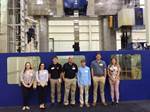









.jpg;maxWidth=300;quality=90)




